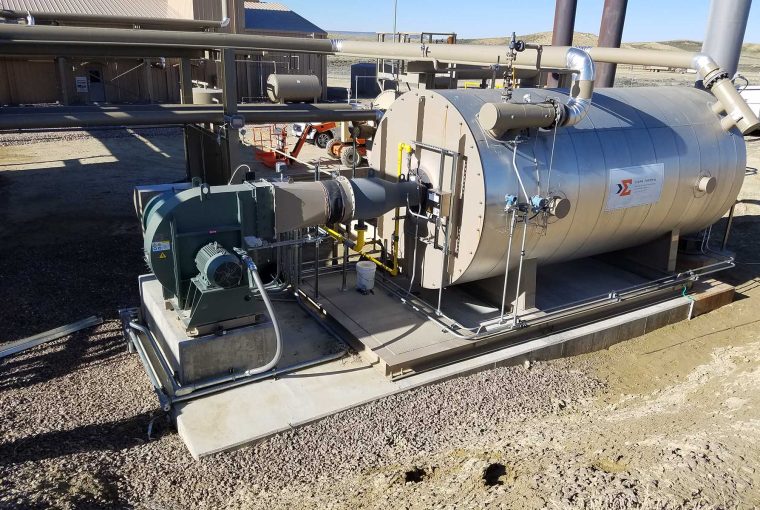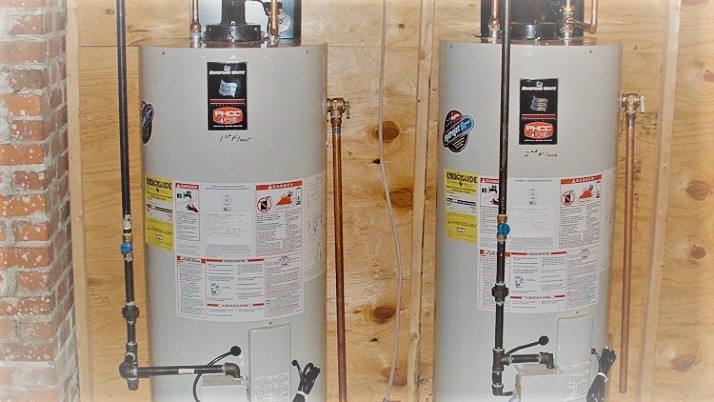In recent times, the energy-efficient and instant hot water provision of tankless water heaters has garnered considerable acclaim. If you’re contemplating the installation of a tankless water heater in your residence, comprehending the amount of propane these units utilize becomes crucial. This article will delve into the factors that impact propane consumption in tankless water heaters, unveiling a comprehensive glimpse into their typical consumption rates.
Tankless water heaters commonly rely on propane as a fuel option, presenting numerous benefits. Propane, a remarkably effective energy source, combusts cleanly and produces fewer greenhouse gas emissions in comparison to alternative fossil fuels. Additionally, it is easily obtainable and can be stored within on-site tanks, providing homeowners without natural gas connections a convenient alternative. Nonetheless, one should take into account the local accessibility and expenses associated with propane prior to selecting a unit powered by this fuel.
Costs of propane gas and propane tankless water heaters:
Propane gas typically ranges from $2 to $2.75 per gallon on average whereas the cost of propane tankless water heaters ranges from $190 to over $2,000 given the make and model of the heater. However, these units are pretty energy efficient, so you may recover your investment made on this water heater earlier than expected.
How to Estimate Propane Consumption:
Manufacturers usually provide specifications that delineate the propane utilization of their tankless water heaters. These particulars may encompass the propane intake rate, BTU (British Thermal Units) output, and projected flow rate of the unit. Through an assessment of these specifications, an approximate appraisal of the propane usage for a particular model can be derived.
However, generally speaking, when it comes to tankless water heaters, it is noteworthy that they can provide a flow of hot water spanning from 2 to 5 gallons per minute, with certain models boasting an astonishing 9 gallons per minute. The US Energy Information Administration (EIA) states that a gallon of propane contains an impressive 91,452 BTUs per hour.
In order to optimize the utilization of this information, one can divide the BTU rating of their tankless water heater unit by 91,452. By employing this calculation, the propane consumption capacity of your water heater can be determined.
For instance, on a daily basis, a standard propane tankless water heater that generates 40,000 BTU/hour might utilize 1.5 gallons of propane.
Despite your limited involvement in household activities, you might find yourself intrigued by the unexpected upswing in monthly propane consumption. This unexpected surge can be ascribed to a diverse range of factors that commonly impact the utilization of propane. Read on to find out what those factors are.
Factors Influencing Propane Usage:
-
Water Consumption:
The propane consumption of a tankless water heater is greatly influenced by the quantity of water utilized within your residence. The propane usage increases as the water flow rate rises and the frequency of hot water usage intensifies. The overall water consumption can be influenced by various factors including the number of individuals residing, showering routines, and the utilization of appliances such as dishwashers and washing machines.
-
Temperature Rise:
The temperature rise pertains to the contrast in temperature between the cold water entering and the intended hot water temperature. The magnitude of the necessary temperature rise directly impacts the amount of energy consumed by the tankless water heater, thereby affecting propane consumption. Elevated temperature configurations or colder groundwater temperatures will lead to amplified propane usage.
-
Efficiency Ratings:
The Energy Factor (EF) and Uniform Energy Factor (UEF) are measurements that gauge the proficiency of a tankless water heater in converting fuel into usable heat. Opting for models with elevated EF and UEF ratings is advisable when aiming to maximize propane efficiency, as higher ratings correspond to less energy wastage and reduced propane consumption. Hence, it is recommended to compare various models based on their efficiency ratings to enhance propane efficiency.
Tips for Optimizing Propane Usage:
-
Proper Sizing:
It is of utmost importance to guarantee the appropriate sizing of your tankless water heater, tailored to meet your household’s hot water requirements, in order to optimize propane efficiency. A unit that is too small may encounter difficulties in meeting the demand for hot water, which can lead to excessive propane consumption. Conversely, an excessively large unit may contribute to unnecessary energy usage. Seek advice from an expert to ascertain the ideal size that suits your individual needs.
-
Temperature Settings:
Finding the ideal temperature configurations for your tankless water heater can effectively harmonize comfort and maximize propane efficiency. By making a slight reduction in the hot water temperature, you can achieve propane savings while still ensuring comfort remains uncompromised. Engage in a trial-and-error process with various temperature settings to ascertain the precise equilibrium suitable for your household.
-
Maintenance and Regular Servicing:
Ensuring the peak performance and efficiency of your tankless water heater requires regular upkeep and service. A properly cared-for appliance will function with greater effectiveness, resulting in reduced propane usage. It is recommended to arrange a professional maintenance session at least once annually to guarantee the cleanliness, functionality, and optimal efficiency of all the unit’s components.
Final Thoughts:
Considering factors like water consumption, temperature increase, and efficiency ratings is crucial in assessing the propane usage of a tankless water heater. Although initial estimates can be obtained from manufacturer specifications and propane usage formulas, it is also imperative to consider the specific requirements of each household.
Improving propane efficiency can be achieved by optimizing the size, adjusting temperature settings, and ensuring regular maintenance. After all, comprehending the consumption of propane in tankless water heaters empowers homeowners to make well-informed choices regarding energy usage and potential savings in costs.



